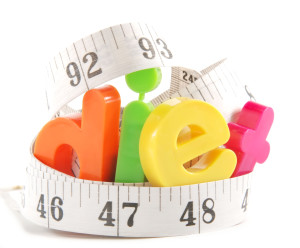It’s almost that time of the year when diet books start flying off the shelves, and everyone wants to know which one they should try. It would be great if there was just one that worked for everyone, but with the number of diets available (and some appearing to contradict others) it seems it’s more complex than that. Or is it?
“As to the methods there may be a million and then some, but principles are few. The man who grasps principles can successfully select his own methods. The man who tries methods, ignoring principles, is sure to have trouble.” – Ralph Waldo Emerson
If you’ve read as many diet books as we have, you’d quickly realize Ralph was right. When you start peeling back the layers of a particular diet and compare it to another one, you quickly realize they’re actually more similar than they are different because they are almost always built on the same principles. Clever marketing allows the authors to differentiate their diet from the thousands of others available.
So what are these diet principles?
It’s pretty simple. Start at the bottom (the foundation), complete it, and move onto the next one.
Step 1: The Foundation: Finding your weakness
Take a really good look at your daily eating habits, and find the one habit that is particularly devastating to your midsection. It might be a soda you have for lunch, an ice cream sandwich you have before you go to bed, or a pick-me-up candy bar you have around 4pm when you hit that late afternoon wall. Find just ONE bad habit and replace it with something healthy. Drink a bottle of water for lunch instead of a soda, eat an apple instead of a candy bar at 4pm, or have a cup of yogurt with blueberries before bed.
We’ve had members lose 10-15lbs in just 4 weeks by removing just ONE bad habit. Trust us, it works. Small changes = BIG results.
Step 2: Calories in vs. Calories out
As much as supplement companies want you to believe that you’ll be able to eat whatever you want and lose weight if you take their product, it just doesn’t work like that. In fact, if you consume more calories than you burn, it doesn’t matter what diet, supplement, or prescription medication you take, you will NOT lose weight and keep it off long-term.
You can either calculate how many calories you burn using an RMR calculator like this or we can use our Korr CardioCoach to give you a more exact measurement. Once you know your estimated RMR, consume anywhere from 100-300 calories less than that per day. A healthy weight loss goal is 1-3 pounds per week.
Side note: Do not drop your daily caloric intake too low. You might lose more weight initially, but you will eventually destroy your metabolism and the weight will come back (often you’ll gain more weight back than you initially started with). In response to an extremely low daily caloric intake, your body will produce less thyroid hormone and your resting metabolic rate will decrease. Instead, if you aren’t losing 1-2 pounds per week, drop your daily caloric intake by another 100-200 calories per day. Continue doing that weekly until you start losing 1-2 pounds.
Step 3: Play around with your macronutrients
So you’ve been losing 1-2 pounds per weeks for several weeks now, and you’ve hit a wall. You can’t drop your daily caloric intake any lower, or you’ll starve yourself. You also already hit the gym 4 times per week, and just cannot find time to add a 5th or 6th session. Now what do you do?
Look at your macronutrients (carbohydrates, protein, and fats) and begin playing around with the ratios. Continue to consume the same number of daily calories you were when you hit the wall. We usually recommend our members to decrease their carbohydrates and increase their protein and/or good fats. Try not to lower your protein intake. Most people don’t consume enough protein and lowering it any further just compounds the problem.
If you follow those 3 steps, we guarantee you’ll see the weight loss you want. Just remember the 3 P’s: Patience, persistence, and planning. (The 4th P would be protein).
As always, if you have a question, just shoot us an e-mail.





Speak Your Mind